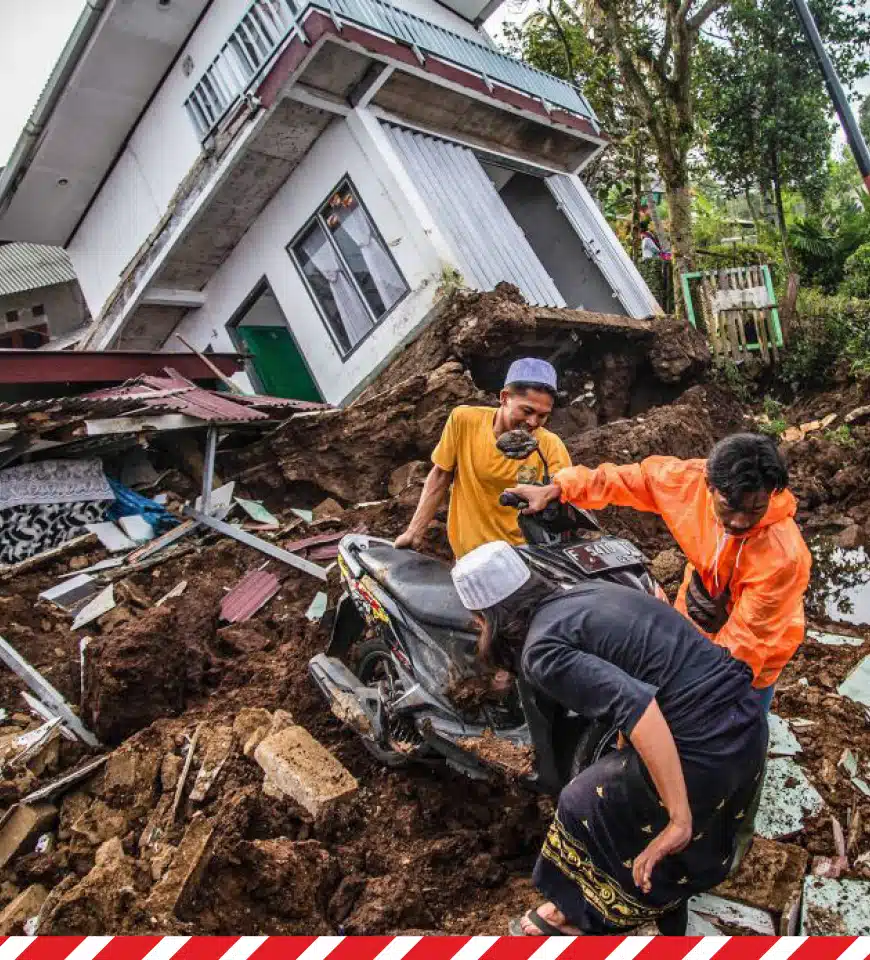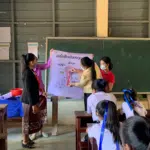Media Centre - Media release - 23 November 2022
Plan International responding to help children affected by Java earthquake

The needs of children affected by the devastating 5.6 magnitude earthquake that struck Cianjur town in West Java on Monday (21 November) must be prioritised in the response, say child rights and humanitarian organisation Plan International.
Many of those killed and injured were children, who at the time of the disaster were in schools, madrasas, and Islamic boarding schools. Thousands have been left homeless, causing fear and uncertainty. It is vital that children get the support they need to help them cope with what has happened, the organisation says.
“Our deepest condolences go to those affected by the earthquake in Cianjur, especially those who have lost children. As an organisation that focuses on ensuring children’s rights and equality for girls, we are moving quickly to help families affected by the earthquake,” says Dini Widiastuti, Executive Director of Plan International in Indonesia.
An emergency response team has been deployed and hygiene kits, health packages, as well as food and bottled water are being prepared for distribution to children and their families.
“After getting more accurate data from our rapid response team who are currently assessing the situation, we will be able to fully address the needs of children affected by the disaster,” Widiastuti explains.
“We are identifying the impact of the disaster and the specific needs, including help for children who have lost their carers, psychosocial services, child-friendly temporary shelters, temporary learning facilities for children displaced by the quake, and children protection needs, as well as other assistance such as clean water and personal hygiene materials.”
The exact number of people killed so far remains unclear. Indonesia’s National Disaster Mitigation Agency (BNPB) has said their official death toll is 103, another 390 people have been wounded and 7,000 people have taken shelter in various locations in the area.
Most of Indonesia’s territory is prone to natural disasters, such as earthquakes, floods, forest fires and volcanic eruptions, so disasters can occur at any time. When events occur in the morning, afternoon and early evening, children are more likely to be affected. The Cianjur earthquake struck at 1pm while children were still at school.
“In rural areas, such as in Cianjur, at 1pm children are generally in schools, madrasas and Islamic boarding schools. Meanwhile, the elderly, people with disabilities and women are at home. Men are generally in the rice fields, or working outdoors. Therefore, children, people with disabilities, the elderly and women are more likely to be affected by disasters,” says Widiastuti.
For this reason, Plan International is urging the government and all relevant parties to strengthen disaster preparedness programmes in schools and communities, especially in areas identified as disaster-prone, such as Cianjur.
It is also vital to ensure that schools and community buildings in areas vulnerable to disasters are resistant to earthquakes, floods and other hazards. Plan International’s Urban Nexus and Safe Schools programmes could be replicated and strengthened by the government so it can have a wider reach.
[ENDS]
For more information, or interviews with our emergency response team in Cianjur and Dini Widiastuti (Executive Director of Plan International in Indonesia) please contact:
Claire Knox, Media & Ambassador manager
Plan International Australia:
Tel: +61 452 326 549
Email: claire.knox@plan.org.au
Muhamad Burhanudin, Media & Communication Manager
Plan International Indonesia:
Tel: +62 856-9244-1525
Media contacts


